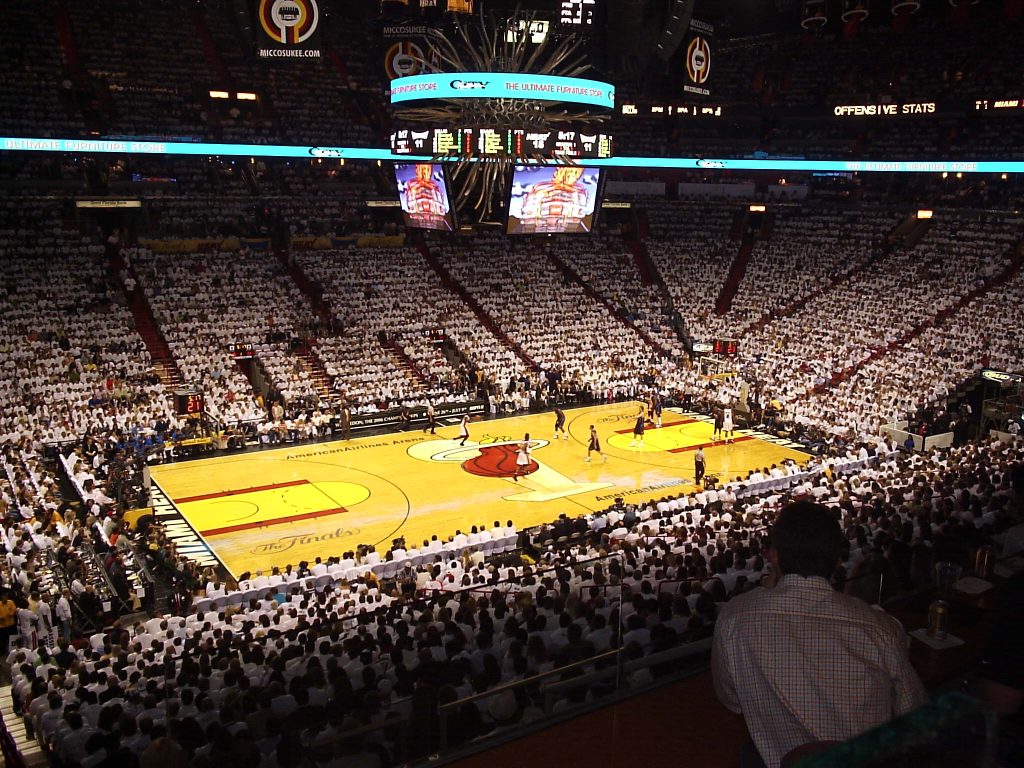
The NBA has long been a global brand, with international players, fans, and markets playing a significant role in its growth. From Yao Ming’s influence in China to the global reach of stars like Giannis Antetokounmpo and Luka Dončić, the league has successfully positioned itself as one of the most popular sports entities worldwide. But could the NBA take the next step and establish teams outside the United States in the next decade?
Let’s explore the factors driving the conversation, the challenges involved, and the potential destinations for an international NBA expansion.
The Push for Globalization
The NBA’s international appeal has skyrocketed over the past few decades. With broadcasts in over 200 countries and a significant portion of its fan base hailing from outside North America, the league has become a worldwide phenomenon.
- International Players in the Spotlight: As of the 2023-24 season, nearly 25% of NBA players were born outside the United States, with stars like Nikola Jokić, Joel Embiid, and Shai Gilgeous-Alexander leading the way.
- Global Viewership: The NBA’s partnership with media outlets in Europe, Asia, and Africa has ensured consistent viewership growth, particularly during high-profile events like the NBA Finals.
- Overseas Games: The league has been experimenting with games in international markets, hosting preseason and regular-season games in cities like Paris, London, and Mexico City. These events have been met with enthusiastic sellouts, showcasing the demand for live NBA action.
Potential Destinations for Expansion
- Mexico City, Mexico
- Why It Makes Sense: Close proximity to the U.S. and an already vibrant basketball culture make Mexico City an attractive option. The city has hosted regular-season games and boasts an NBA G League team, the Mexico City Capitanes.
- Challenges: Language barriers and logistics in accommodating a full-time NBA franchise could be hurdles.
- London, England
- Why It Makes Sense: London is a financial and cultural hub with a massive sports market. The NBA has hosted several games at the O2 Arena, demonstrating the city’s interest in basketball.
- Challenges: Time zone differences with the U.S. could complicate scheduling, especially for primetime games.
- Paris, France
- Why It Makes Sense: France has a thriving basketball scene, with players like Victor Wembanyama and Rudy Gobert being prominent NBA stars. Paris also hosted a successful regular-season game in 2023.
- Challenges: Similar to London, time zones and travel distances may create logistical concerns.
- Sydney, Australia
- Why It Makes Sense: Australia has emerged as a basketball hotbed, producing NBA talent like Josh Giddey and Ben Simmons. A franchise in Sydney could tap into the country’s growing passion for the sport.
- Challenges: The travel distance from Australia to the U.S. would be among the longest in professional sports, posing significant logistical challenges.
- Shanghai, China
- Why It Makes Sense: China has one of the largest NBA fan bases, with millions tuning in to watch games every season. A franchise in Shanghai could cement the NBA’s dominance in Asia.
- Challenges: Political tensions and travel logistics make this a complicated prospect in the near term.
Challenges to International Expansion
While the idea of global NBA teams is enticing, it comes with considerable challenges:
- Travel and Scheduling: Long flights and time zone differences could lead to player fatigue and impact competitive balance.
- Market Saturation: Adding international teams would increase the number of games, which might dilute interest or overextend players.
- Infrastructure and Costs: Establishing new franchises requires significant investments in arenas, training facilities, and local marketing.
- Cultural Integration: Ensuring that international players, staff, and fans feel fully integrated into the NBA system would require thoughtful planning.
Solutions and Innovations
- Regional Divisions: The NBA could introduce regional divisions for international teams, reducing travel demands by clustering games in nearby markets. For instance, a European division could include teams in London, Paris, and another major city.
- Neutral-Site Games: To ease the transition, the NBA could expand its neutral-site games schedule to further test the viability of international locations before committing to full-time franchises.
- Technology for Fan Engagement: Virtual reality and live-streaming innovations could bridge the gap for fans who cannot attend games in person, helping to build an international fan base.
The NBA’s Global Future
The next decade presents an exciting opportunity for the NBA to expand its footprint beyond the United States. While challenges remain, the league’s growing popularity worldwide and its track record of innovation suggest that international franchises are a real possibility.
Whether it’s a team in Mexico City, Paris, or Sydney, one thing is clear: the NBA’s future is global, and fans across the world are ready for it.
Would an international NBA team excite you? Share your thoughts below!
